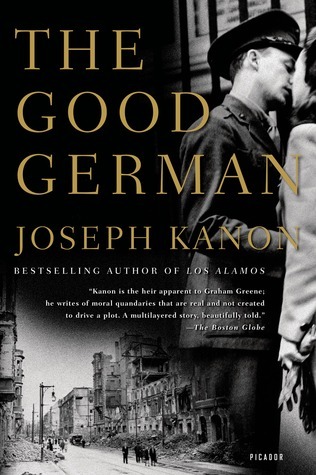
Fatherland
Book Description
An unthinkable victory has altered the very fabric of Europe, and in a meticulously crafted 1964 Berlin, a detective named Xavier March is about to uncover a chilling conspiracy that could shatter the illusion of the Reich's utopia. As he delves deeper, the lines between loyalty and betrayal blur, and the shadows of history whisper truths too dangerous to confront. Allies turn into enemies, and every clue draws him closer to a deadly secret that could ignite a revolution. With time running out and dangers lurking in every corner, will March expose the truth before it consumes him?
Quick Book Summary
"Fatherland" by Robert Harris imagines a chilling alternate history in which Nazi Germany won World War II, reshaping Europe under a totalitarian Reich. The novel takes place in 1964 Berlin, a city both modernized and stifling under the Nazi regime. Detective Xavier March stumbles upon the suspicious death of a high-ranking official. As March delves deeper, aided by American journalist Charlotte Maguire, he unravels a devastating conspiracy regarding the fate of Europe’s Jews—one that the Nazi regime has ruthlessly hidden. With the eyes of the world on Berlin ahead of a historic summit, March races against time, facing betrayal, surveillance, and violence from all sides. The story masterfully blends thriller elements with a sobering reflection on truth, loyalty, and the cost of resistance in a world built on lies.
Summary of Key Ideas
Table of Contents
The Construction and Cost of Alternate Realities
The world of "Fatherland" is a meticulously detailed alternate 1964 Berlin, where the Third Reich has triumphed and crafted a seemingly utopian society built on control, propaganda, and silence. The city is polished, efficient, technologically advanced, and profoundly oppressive. Detective Xavier March, a sometimes-disillusioned officer in the Kriminalpolizei, becomes involved when a prominent Nazi official is found dead, the case initially poised to be covered up by the authorities. However, March’s persistent nature compels him to dig deeper, risking everything to seek the truth.
Truth Versus State-Controlled Narratives
As March investigates, he partners with Charlotte Maguire, an American journalist searching for her own answers. The two discover that the murders of several old Nazi officials are linked to a hidden past—the fate of the Jews in Europe. Facing a wall of secrecy, March finds that all evidence of the Holocaust has been brutally erased from public consciousness. The Reich’s success depends on maintaining this collective amnesia, and the narrative is rigorously policed by both legal and extralegal means. The danger to March and Maguire escalates with each new revelation.
Moral Choices under Totalitarianism
March is forced to confront the corruption and moral rot at the heart of the Reich he serves. Friends become adversaries, and even family members can’t be trusted as state loyalty is prized above human connections. Surveillance, betrayal, and the intoxicating fear of being watched permeate every aspect of daily life. March’s journey is not only a thriller’s race against time but also a deeply personal struggle with the ethical costs of knowing the truth in a regime built upon lies. His decision to pursue the investigation pits him against insurmountable odds and shatters his life’s stability.
Personal Loyalty and Betrayal
Interwoven with the personal story is an exploration of the dangers of state-controlled history. The regime’s ability to erase, rewrite, and suppress the truth renders its citizens complicit, willingly or otherwise, in ongoing atrocities. Harris uses the thriller format to ask profound questions about memory, responsibility, and the thin line separating civilization from barbarity. The secret March uncovers—that the Holocaust did occur and was mercilessly concealed—serves as a powerful metaphor for the necessity and danger of confronting uncomfortable history. The book’s chilling plausibility and intense atmosphere offer a warning about the fragility of truth and justice.
The Power and Danger of Historical Memory
Ultimately, "Fatherland" is as much a meditation on the choices individuals make under oppressive regimes as it is a riveting crime thriller. March’s determination to pursue the truth highlights the enduring human craving for justice, even in the bleakest circumstances. The novel closes ambiguously, suggesting that while one person’s actions might not topple a monolithic system, the mere act of resistance is meaningful. Harris ends with a haunting reminder: the past, no matter how buried, cannot remain hidden forever.
Download This Summary
Get a free PDF of this summary instantly — no email required.





